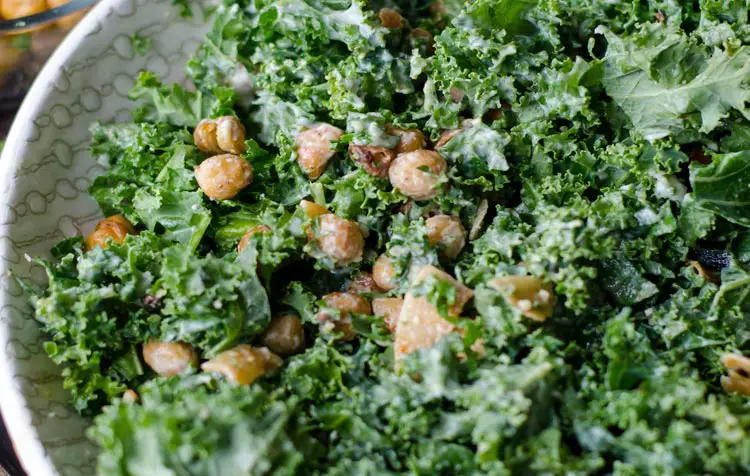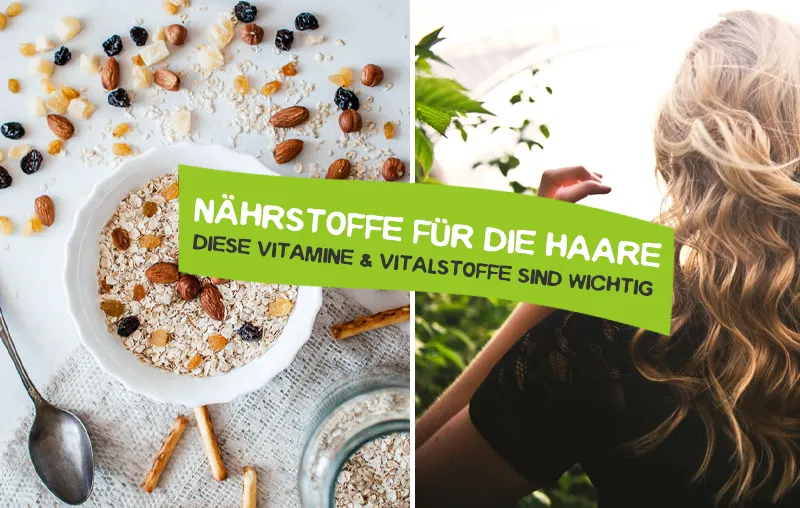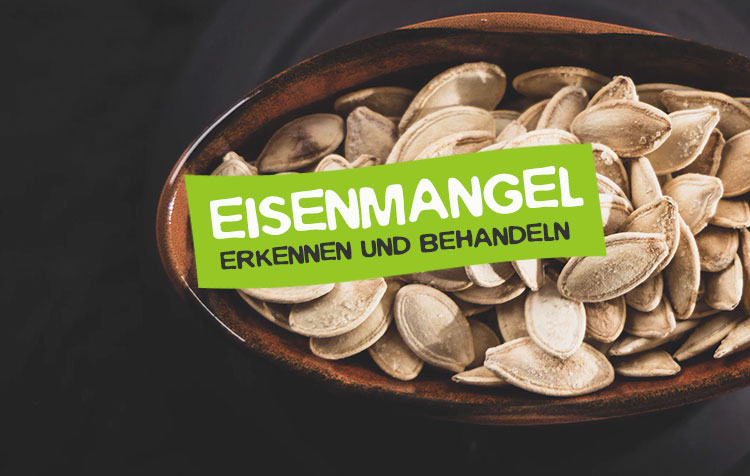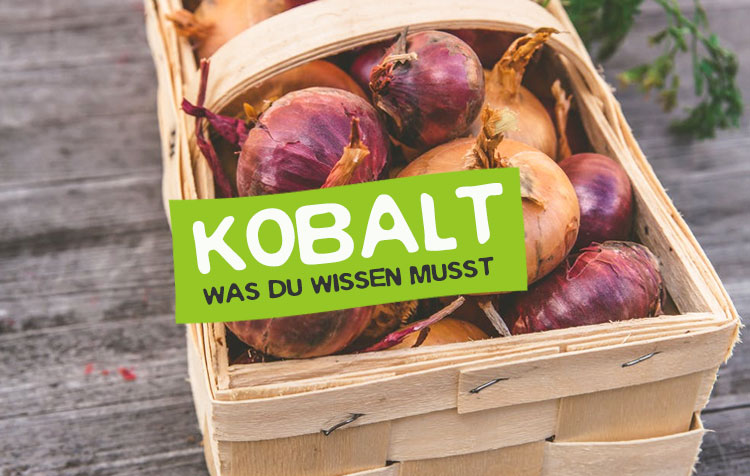You want to learn about vitamin K? Then you will find here in this article the most important information about the fat-soluble vitamin.
We start with a short profile, continue with the intake, daily requirement, function, risk of overdose or deficiency, to the rich foods and supplements. Finally, we look at what to look for in a plant-based diet regarding vitamin K.
Here is in advance a short Overview for you:
Notice: This article is not a substitute for medical advice, but provides general information about vitamin K only. Please consult your doctor if you feel unwell or want to prevent health problems with medical care.
VITAMIN K PROFILE AT A GLANCE
Assignment: fat-soluble vitamins
Synonyms: Phylloquinone, menaquinone-n, menadione
Important for: Blood clotting, vascular health, bone metabolism
Daily requirement: 60-120 µg/day from the age of 15.1,2,3
Overdose: unlikely, no upper limit defined3,4
Deficiency symptoms: Including bleeding tendency, disturbed bone metabolism
Food: Natto, parsley, green leafy vegetables, barley grass juice, cabbage varieties.
Nutritional supplement: in the form of tablets, powder or drops
The vitamin K supply
Vitamin K includes the fat soluble vitamins K1, K2 and K3, which are also known as phylloquinone, menaquinone-n and menadione. Vitamin K1 is found in plants, while K2 is produced by microorganisms. K3 is a synthetic form.
The Bioavailability of vitamin K varies between 10 and 80 percent, depending on the food and the nature of the vitamin. You can increase absorption of the valuable nutrient by combining high-quality fats and vitamin K-containing foods in a meal. Likewise, liver health is important for absorption rates, as the liver provides enzymes to metabolize vitamin K.
Good to know: When cows eat grass, they absorb K1 from the plants, and vitamin K2 is formed by fermentation in the cows' digestive tract brought about by microorganisms.
What is the daily vitamin K requirement?

The recommendations of various nutrition societies for daily vitamin K intake are quite a bit apart. The Office of Dietary Supplements has defined a gender-dependent intake. From the age of 19, men are recommended 120 µg/day and women 90 µg/day.2
The European Food Safety Authority (EFSA) recommends 1 µg K1 per kg body weight for adults regardless of gender and rounds this figure to 70 µg K1 per day.3 In my opinion, this way of working is highly questionable and the recommendation of 1 µg/kg daily is much more accurate. As well as a 90 kg man or 50 kg woman, one would come to more precise recommendations.
The feed recommendations of the German Society for Nutrition (DGE) differentiate between gender and age and are shown in the following table in µg/day1:
| Age | male | female |
| 1 to under 4 years | 15 | 15 |
| 4 to under 7 years | 20 | 20 |
| 7 to under 10 years | 30 | 30 |
| 10 to under 13 years | 40 | 40 |
| 13 to under 15 years | 50 | 50 |
| 15 to under 51 years | 70 | 60 |
| 51 years and older | 80 | 65 |
All three of the aforementioned nutrition societies recommend no changes in intakes for pregnant and breastfeeding women.1,2,3
What are the functions of the vitamin in the body?
Vitamin K increases the Blood clotting because it is a cofactor for an enzyme that activates blood clotting factors. Furthermore, the fat-soluble vitamin is likewise important for the Vascular Health responsible by counteracting the calcification of blood vessels. Thereby the risk of cardiovascular diseases decreases. to suffer.5
Vitamin K supports the Bone Healthby promoting bone formation through the formation of osteocalcin. Furthermore inhibits it the Formation of kidney stones to suffer. In addition, the vitamin is believed to be involved in cell growth and signal transduction.
Presumably K2 can do the Reduce liver cancer risk. This was the conclusion of a study by the Journal of the American Medical Associationin which female subjects were provided with a K2 supplement. Compared with the control group, there were significantly fewer cases of liver cancer.6
The Importance of vitamin K for the human body can be summarized as follows:
- Blood clotting
- Vascular Health
- Bone Health
- Inhibits formation of kidney stones
- Reduces liver cancer risk
Is there a risk of oversupply?
An oversupply of vitamin K is rather unlikely in adults. Since no toxic effects have been demonstrated for the nutrient, neither DGE, EFSA nor the Office of Dietary Supplements defines a Tolerable Upper Intake Level or a maximum intake.1,2,4
Is it possible to suffer from a vitamin K deficiency?
German nutrition societies like to mention that Germany is not a vitamin deficient country and emphasize the sufficient supply of vitamins for the population.7 In contrast, a study by the University of Maastricht shows that children and adults can suffer from vitamin K deficiency on a regular basis.8
Causes of deficiency may be a diet low in vitamin K, absorption disorders of the vitamin, or fat absorption disorders that reduce vitamin K absorption. Likewise, coumarin derivatives may limit vitamin K action.
Especially for a lack at risk are older people, as they often suffer from gastrointestinal diseases or malnutrition.9 Another risk may be antibiotic treatments, as these kill vitamin K-producing bacteria in the gut, potentially reducing the respective status.2
Symptoms of deficiency are an increased bleeding tendency due to impaired blood clotting and impaired bone formation. Other symptoms may include increased bruising or regular nosebleeds.
What are the best suppliers of vitamin K among foods?
When it comes to nutrient supply, it is important to distinguish between K1 and K2. This is because K1 is mainly found in green leafy vegetables, while K2 is mainly found in fermented foods.
In principle, various green leafy vegetables and cabbage varieties are particularly good sources. However, there are a few other foods with particularly high vitamin K content. The following table contains the best sources of vitamin K:
- Natto (880 μg per 100 gram)
- Barley grass powder (860 µg per 100 gram)
- Parsley (790 µg per 100 gram)
- Nettle (600 µg per 100 gram)
- Beef liver (263 µg per 100 gram)
- Spinach (260 µg per 100 gram)
- Kale (250 µg per 100 gram)
- Brussels sprouts (250 µg per 100 gram)
Natto is fermented soybeans, a traditional Japanese food that is often eaten with sushi or rice dishes. Natto or barley grass powder can be used to supplement the supply of the fat-soluble vitamin in a very targeted manner. You can integrate nettles into your diet, for example, by mixing them into spinach in a 1:1 ratio.
K1 or K2? Previous studies only partially distinguish between the two forms. K1 is mainly absorbed and stored in the liver, while K2 is concentrated in bones, cartilage and vessel walls. It is also possible that a conversion of K1 to K2 takes place, although the rate is still unknown. The study situation does not yet allow any concrete conclusions to be drawn here, which is why most intake recommendations do not differentiate between K1 and K2.

What do you have to consider regarding vitamin K in a vegan diet?
Vitamin K is recommended by the DGE not as potentially critical nutrient classified for vegans and vegetarians.10 The best suppliers of the fat-soluble vitamin are plant-based, which is why a deficiency is virtually impossible with a balanced diet of green leafy vegetables, cabbage varieties and, if necessary, targeted supplementation with natto and barley grass.
Should vitamin K be supplemented?
Because of the health benefits, a good supply of vitamin K is extremely important. But is supplementation also necessary? It can be useful from various points of view. Before you take the vitamin as a dietary supplement, it is recommended to first determine the current vitamin level with your family doctor or alternative practitioner.
When you Vitamin D supplementation, calcium absorption increases so that vessels can calcify more easily. In this case, an adequate supply of vitamin K is particularly important to ensure vascular health. Supplementation is a good idea. Therefore there are many Combination preparations with vitamin D and K.11
But you should pay attention to the particular form. The most usable form for humans is MK-7 all-trans. Another good option is Barley grass powderbecause it is a real nutritional bomb. With only 3 teaspoons, you get about 80 µg of vitamin K and many other vitamins and minerals.
Which dietary supplements are recommended?
If you want to be sure, a Multi-nutrient preparation an. The vegan multi-nutrient contains vitamin K and some other nutrients.
- The Capsules you get here*.
- If you want to combine vitamin D3 and K2, there are also D3-K2 tablets. The you get here*
- Barley grass powder you get here*
FAQ: The most frequently asked questions about vitamin K
Which foods contain vitamin K?
Extraordinary amounts of vitamin K can be found in natto and barley grass. Green cabbage (e.g. kale and Brussels sprouts) and green leafy vegetables (e.g. spinach) also contain large amounts of vitamin K.
Is vitamin K the same as potassium?
No, potassium is a quantity element and not a vitamin. Therefore, vitamin K and potassium are not the same. However, both nutrients are important for vascular and bone health.
What are the functions of vitamin K in the body?
Vitamin K helps keep blood vessels and bones healthy. It also inhibits the formation of kidney stones and probably reduces the risk of liver cancer.
Is vitamin K a blood thinner?
No, vitamin K does not have a blood-thinning effect. However, it does promote blood clotting and the decalcification of blood vessels, thus contributing to the health of the cardiovascular system.
What is the name of vitamin K?
Other names by which vitamin K is known are phylloquinone, menaquinone-n, menadione.
Vitamins K1 and K2 are healthy!
Whether you eat a vegan, vegetarian, or mixed-food diet, if you're enough green leafy vegetables and cabbage varieties in your diet and combine it with high quality fats, you will most likely get enough vitamin K. Supplementing with natto and barley grass can be a great option to provide you with the vitamin.
Now nothing should stand in the way of a sufficient supply of the valuable vitamin. The best way to supplement the healthy diet with a lot of movement in the fresh air and reduce your stress, for example through meditation. Thereby you promote your holistic health.
Do you have any questions, suggestions or criticism about this article on vitamin K? Then feel free to write me a comment.
All the best,

PS.: In our Nutrient database you will find many more articles on nutrients and healthy eating. Next, for example, look at the article on Vitamin B6 on. Have fun!
References:
1 Deutsche Gesellschaft für Ernährung e. V.: Vitamin K, https://www.dge.de/wissenschaft/referenzwerte/vitamin-k/?L=0. [12.08.2021].
2 National Institutes of Health. Office of Dietary Supplements: Vitamin K. Fact Sheet for Health Professionals, https://ods.od.nih.gov/factsheets/VitaminK-HealthProfessional/. [12.08.2021].
3 European Food Safety Authority: Scientific Opinion on Dietary reference values for Vitamin K, https://efsa.onlinelibrary.wiley.com/doi/epdf/10.2903/j.efsa.2017.4780. [12.08.2021].
4 European Food Safety Authority: Tolerable Upper Intake Levels for Vitamins and Minerals, https://www.efsa.europa.eu/sites/default/files/efsa_rep/blobserver_assets/ndatolerableuil.pdf. [12.08.2021].
5 Center for Health: Vitamin K. The Forgotten Vitamin, https://www.zentrum-der-gesundheit.de/ernaehrung/vitamine/weitere-vitamine/vitamin-k. [12.08.2021].
6 Habu D et al (2004): Role of vitamin K2 in the development of hepatocellular carcinoma in women with viral cirrhosis of the liver, JAMA Jul 21;292(3): pp. 358-361. Online: https://jamanetwork.com/journals/jama/fullarticle/199121 [Aug 12, 2021].
7 A. Bechthold, V. Albrecht, E. Leschik-Bonnet, H. Heseker (2012): DGE Opinion: Assessment of vitamin supply in Germany. In: Ernährungsumschau 59 (2012), pp. 324-336. Online: https://www.ernaehrungs-umschau.de/fileadmin/Ernaehrungs-Umschau/pdfs/pdf_2012/07_12/EU07_2012_396_401.qxd.pdf. [12.08.21].
8 E. Theuwissen, et al. (2014): Vitamin K status in healthy volunteers. In: Food Funct, February 2014. Online: https://pubs.rsc.org/en/content/articlelanding/2014/FO/C3FO60464K. [12.08.2021].
9 Zentrum der Gesundheit: Vitamin K - What you should look out for in old age, https://www.zentrum-der-gesundheit.de/news/gesundheit/allgemein-gesundheit/vitamin-k-bei-aelteren-menschen-190705072. [12.08.2021].
10 Deutsche Gesellschaft für Ernährung e. V.: Supplement to the position of the German Nutrition Society regarding population groups with special nutritional needs, https://www.dge.de/wissenschaft/weitere-publikationen/dge-position/vegane-ernaehrung/?L=0 [12.08.2021].
11 Center for Health: The Right Way to Take Vitamin D, https://www.zentrum-der-gesundheit.de/ernaehrung/vitamine/vitamin-d-uebersicht/vitamin-d-die-richtige-einnahme. [12.08.2021].





